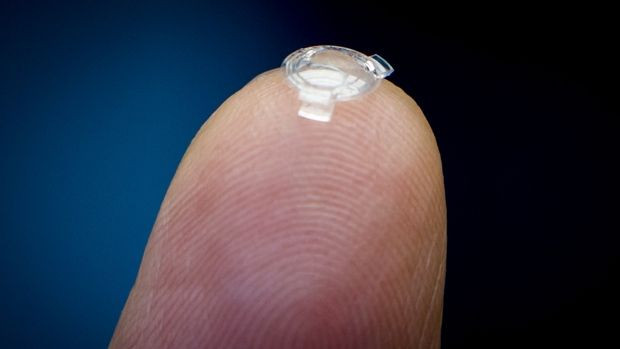Bionic Lenses Will Improve Eyesight 3 Times Better Than 20/20 Vision; Seeing Perfect Without Contacts And Glasses

Perfect eyesight may soon be surpassed without the help of contact lenses or glasses. After spending $3 million toward eight years of research and development, Ocumetics Technology Corp. hopes to provide patients eyesight three times better than 20/20 vision. Details of the promising eight-minute surgery were presented to the American Society of Cataract and Refractive Surgery’s annual meeting.
"This is vision enhancement that the world has never seen before," said optometrist and CEO of Ocumetics Technology Corp. Dr. Garth Webb, according to CBC News. "If you can just barely see the clock at 10 feet, when you get the Bionic Lens you can see the clock at 30 feet away. Perfect eyesight should be a human right.”
Replacing the need for corrective lenses would change how 14 million visually impaired Americans currently see the world. Webb’s nearly decade-long dedication to the project stems from his own personal frustration wearing glasses since he was in second grade. When he was 45 years old and had to start wearing reading glasses on top of his contact lenses. He said he found it insulting, and that he would “also curse just about every day.”
An eight-minute surgery is all it would take to immediately correct a patient’s eyesight, no matter how poor their vision is, Webb said. The painless procedure is identical to cataract surgery and has the potential to completely restore vision. The lenses would be custom-made for each individual’s eye, folded like a taco in a saline syringe, and then injected directly into the eye where it would unravel into place within 10 seconds.
Currently, Webb's team waiting to start clinical trials on animals. If everything goes smoothly with those, as well as human trials, the Bionic Lens could be available in Canada as little as two years. Webb has also set up a foundation called Celebration of Sight to raise money for eye surgery in developing countries and eye institutions throughout the world. Fourteen of the top ophthalmologists in San Diego met the day before the annual meeting and agreed on the potential the Bionic Lens has for the future of vision.
"There's a lot of excitement about the Bionic Lens from very experienced surgeons who perhaps had some cynicism about this because they've seen things not work in the past,” said Dr. Vincent DeLuise, an ophthalmologist who teaches at Yale University, according to CBC News. “They think that this might actually work and they're eager enough that they all wish to be on the medical advisory board to help him on his journey. I think this device is going to bring us closer to the holy grail of excellent vision at all ranges — distant, intermediate and near."



























